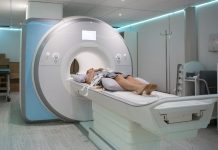What impact does machine learning have on clinical care? A study reveals that AI-generated alerts can significantly enhance patient outcomes
Published in Critical Care Medicine, the study found that hospitalised patients whose care teams received real-time AI alerts were 43 per cent more likely to have their care escalated and were notably less likely to die.
Lead author Dr. Matthew A. Levin, Professor of Anesthesiology and Genetics at Icahn Mount Sinai, emphasised the importance of this innovation: “We wanted to see if quick alerts made by AI and machine learning, trained on many different types of patient data, could help reduce both how often patients need intensive care and their chances of dying in the hospital.”
AI and healthcare
Healthcare providers have relied on manual methods like the Modified Early Warning Score (MEWS) to predict patient deterioration. However, this study shows that AI can outperform these older methods, allowing for earlier interventions and potentially saving more lives.
The study, which was non-randomised and prospective, involved 2,740 adult patients admitted to four medical-surgical units at Mount Sinai Hospital. These patients were divided into two groups: one that received real-time alerts about potential health deteriorations, and another where alerts were generated but not sent. In units where alerts were suppressed, patients meeting standard deterioration criteria still received urgent interventions.
Key findings from the intervention group included an increased likelihood of patients receiving heart and circulation-supporting medications and a reduced 30-day mortality rate. Dr. David L. Reich, senior author and President of Mount Sinai Hospital, highlighted the benefits: “We wanted to see if quick alerts made by AI and machine learning, trained on many different types of patient data, could help reduce both how often patients need intensive care and their chances of dying in the hospital.”
AI-based clinical decisions
Despite the study being cut short due to the COVID-19 pandemic, its success led to the deployment of the algorithm across all step-down units at Mount Sinai Hospital. These specialised units provide close monitoring for patients who are stable but still require significant care, bridging the gap between intensive care and general hospital areas.
Every day, intensive care physicians visit the 15 patients with the highest prediction scores, offering treatment recommendations to their doctors and nurses. This process allows the algorithm to improve continually through reinforcement learning, as it is retrained on larger patient datasets over time.
Beyond this clinical deterioration algorithm, Mount Sinai researchers have developed and deployed 15 additional AI-based clinical decision support tools throughout their health system. The study, titled “Real-Time Machine Learning Alerts to Prevent Escalation of Care: A Nonrandomized Clustered Pragmatic Clinical Trial,” included contributions from several experts at Icahn Mount Sinai and Yale University.











